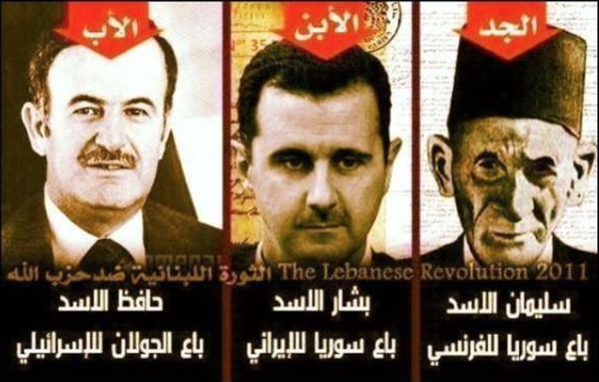Watching and waiting as Syrians talk it out in Moscow
Maria Dubovikova/Al Arabiya
Tuesday, 7 April 2015
The second round of the intra-Syrian talks started this Monday in Moscow. The first round took place in January and according to the press conferences that followed that four-day meeting, it left rather positive impressions and gave some hope that change was afoot.
However, the limited nature of the Syrian opposition representation during the talks, both during Moscow-I (January, 2015) and Moscow-II (April, 2015), doesn’t give us hope for a true breakthrough. Furthermore, no concrete results and agreements should be expected from these talks, as the main aim of the Moscow talks is not to find a solution but to make the sides talk and to lay the ground for the internal, intra-Syrian negotiations to bear fruit on home ground in the future.
The current negotiations are also moderated by the famous, internationally respected, Russian orientalist Vitaly Naumkin, who successfully performed as a moderator during the January session of the talks. The current meeting unites the official Damascus representatives and the Syrian opposition representatives together around the negotiation table. The Syrian National Coalition (SNC) won’t attend the new round of talks, thus they are continuing to ignore Moscow’s initiative.
The limited nature of the Syrian opposition representation during the talks doesn’t give us hope for a true breakthrough. However, the Russian authorities claim to be in stable, regular contact with the SNC. The participants are practically the same as they were in January.
Inclusive peace process
Following tradition, Russia’s Foreign Minister Sergei Lavrov will meet the participants, and will apparently call for an inclusive peace process and expand on the importance of settling the conflict for Syrian and regional security in a meeting that is to be held behind closed doors.
The sealed off nature of this round of talks seems to show that they are not all about serving Russia’s geological goals.
Before the talks, the Syrian regime liberated 650 prisoners between March 25-27, according to the Syrian Observatory for Human Rights.
It should be reminded that the problem of political prisoners had been raised by opposition leaders during the previous talks, and it is raised now by the opposition participants. Damascus representatives are forced to discuss these issues, but with little enthusiasm.
The preparation process was not without unreasoned maneuvers from Damascus as well. It didn’t lift a travel ban for Louaya Hussein, a key activist in Syria’s opposition. Russian authorities appeared to be powerless to bring Louaya Hussein to the round-table in Moscow. This short-sighted position and such obstacles, minor enough at first sight, created by the Syrian regime don’t contribute to the negotiation process and the national dialogue, but on the contrary, impede it and defer the possibility of a broad peace process.
Humanitarian issues
It is remarkable that while the previous round was trying firstly to help the opposition to elaborate the common principles and to launch their direct talks with the government forces, these talks will be focused on humanitarian issues.
Over 220, 000 people have been killed in the conflict since early 2011. Over 10 million people are displaced. According to the UNICEF data, at least seven million Syrian children (including nearly two million registered children refugees) had been substantially affected by the conflict. There is a huge problem with humanitarian assistance and it is currently insufficient. All these issues pale in comparison to the march of ISIS.
The responsibility for this collapse lies upon the shoulders of both the government and the opposition forces, as they appeared to be incapable of negotiating and preventing the civil war in the early stages of the conflict. The international players that took sides in the internal conflict have also played a role, and have been fueling the conflict with arms instead of pushing the sides to dialogue.
It is too late to settle the conflict for more than 220,000 people. All these lives are lost, forever pulverized in the mills of war. But there is still time for the conflict to be settled for millions of Syrians who continue to live through the war.
The Moscow talks would be a long process and it’s quite obvious that some more rounds will be needed before the sides are ready to talk to each other without moderators and mediators.
The philosophy of the current talks and of the needed negotiation process was nicely formulated by Randa Kassis, president of the Movement for a Pluralistic Society, who said: “We won’t get to a political transition without slowly giving and taking.” Don’t expect remarkable successes. Expect dialogue. Now this is the most important and needed thing we should be on the lookout for.























